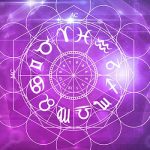As per Vedas, especially Ayurveda, there are five elements called Pancha Mahabhutas (five great elements) in Hindu Dharma. The cosmic creation starts from these and is worshipped as Prithvi (Earth), Akash (Space), Agni (Fire), Vayu (Air) and Varuna/Jal (water). These are believed to be elemental Gods as per mythology and are self-existent beings and immortal. Not just Indian mythology, many philosophies and cultures worldwide have studied and had discussions about these elements of life. Here, you will learn more about Agni Dev or the God of Fire, as per Hinduism.

Who is the God of Fire?
Agni means fire in Sanskrit, and it means Fire God. According to Vedas, Agni is one of the most important deities and is said to rule the Earth. He is glorified and praised with many Hymns and is said to be the main deity as per Rig Veda, along with Vayu (Wind) and Surya (Sun). It is said to be the deity that guards the South-East direction and is seen in the South-East corners of any Hindu temple. As per cosmology, Agni, along with the other elements, merge to create Prakriti (material existence).
Some scripts also describe Agni as the twin of the King of Heavens, Lord Indra. In the Vedic age, Agni was in an important position – along with Indra and Surya, who were called the holy trinity of Vedic gods. Agni is believed to be the protector and friend who is said to shield your house.
There are many forms of fire which are sacrificial fire, domestic fire, sun, comets, digestive fire and funeral fire. Apart from playing a pivotal role in Yajna (sacrificial rituals), Agni is also said to be the messenger between the celestial and human realms. So, sacrifices that happen through him reach the deities directly. During the Vedic period, Agni was believed to have played a major role in animal sacrifices. In the modern era, Agni continues to play a critical role in traditional Hindu weddings, which have a fire altar.
Legends of Agni
It is said that Agni became infatuated with the Saptarishis wives, who had come with him when he went to a Yagna. But he knew they would not betray their husbands and felt miserable. He went for a walk to clear his head when he met Swaha, Daksha’s daughter. Swaha had wanted to marry Agni, and she got to know that Agni was infatuated with Saptarishi’s wife. So, she seduced Agni by disguising herself as the wife of Angira. She then went on to disguise herself as the wife of the other six rishis, one after the other. But when she tried to assume Arundati’s form (Vashistha’s wife), Agni got to know the deception as Arundhati was a very committed wife.
Swaha came back to her original form, and Agni was not upset with her as his desire was fulfilled without the spouses breaking the marriage rules. He then asked her to be his spouse. Swaha was happy and accepted the marriage. After their marriage, Agni declared he would not take any offerings until Swaha was uttered. That is why priests say Swaha before adding anything to the fire.
Another interesting story is that Agni once offended Sage Bhrigu. Agni got a curse that he would always stay hungry and swallow everything. Lord Brahma later felt pity, reduced the curse, and blessed that whatever Agni touched would become pure.
Importance of Agni
Several Hindu rituals and ceremonies induce Agni. Birth, death, prayers, etc., incorporate diety and include Agni. It is written in Atharvaveda that Agni is the carrier of the soul of the dead to take rebirth in the next world. His presence in the South-East corner of the shrine in a temple is also a significant aspect of the temple architecture. In Vedic books, Agni, along with Soma, Vayu, and Indra, are frequently summoned, and Agni is the intermediary that can send human offerings to the deities. As per Hindu verses, he is present in three levels: in form or lighting in the sky, in the form of fire on earth, and as a messenger between Gods and humans as the Sun. Agni plays a vital role in Ayurveda and is said to control life. Agni is believed to assist in many physiological aspects of the body. Hindus rever him and include him in weddings, birth, death and prayer rituals.
Agni has an important place in many religious ceremonies and, as a deity, can get rid of impurities. Worshipping Him can help get rid of all impurities and negativities and free devotees from miseries and sufferings in life.
